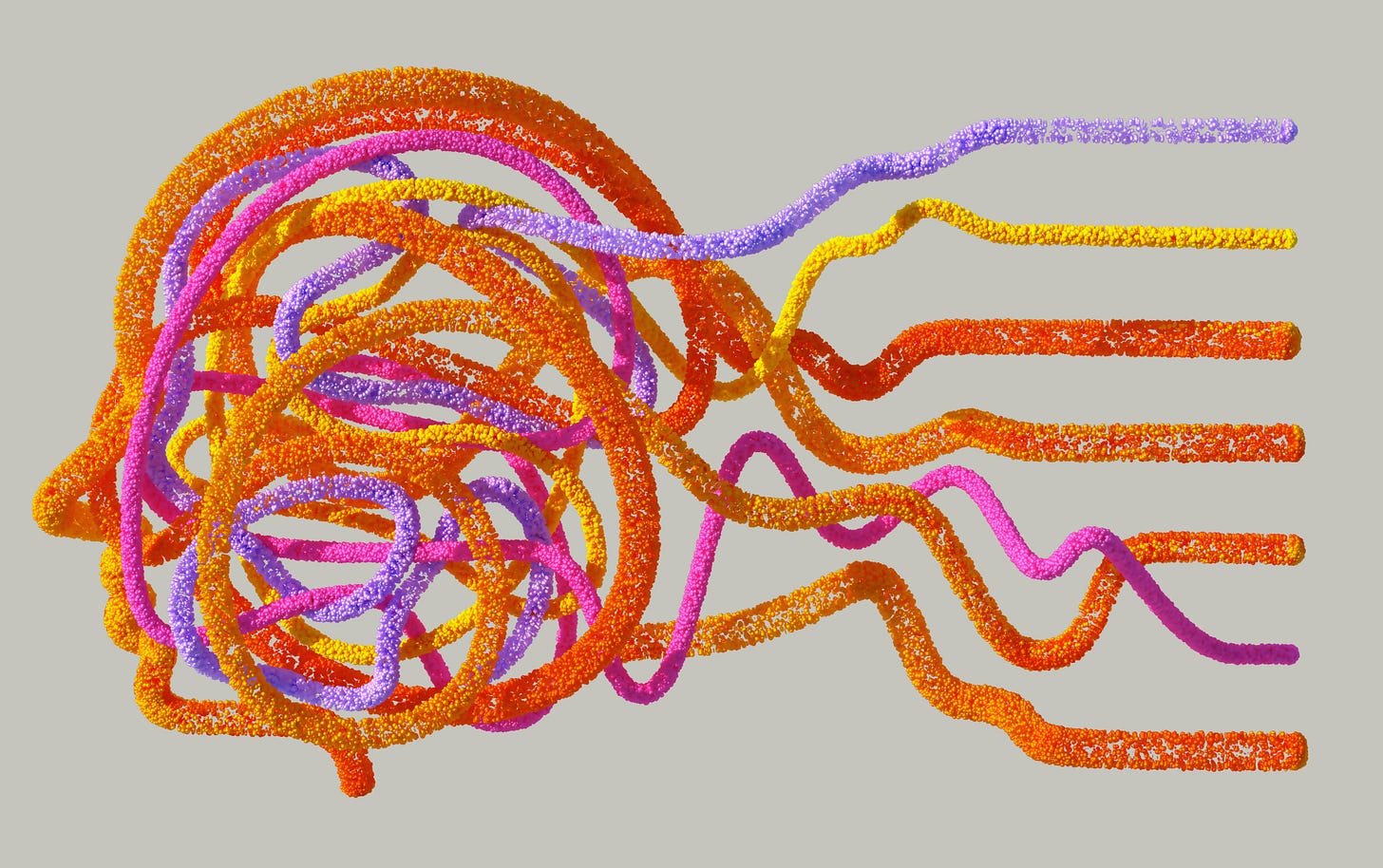Why would your teenage son need a mental diagnosis?
Your teenage son stops trying and fails a class. He misses turning in assignments. He stays out past curfew repeatedly, despite your attempts to change the behavior. His once jovial self becomes sullen and withdrawn. When we, as parents, start to see problems in our teenage sons, it can be easy to look the other way. We may think it is a phase, a natural part of being a teenager, or that he might be coping with stress. Part of parenting teenagers, particularly teenage boys, is determining when to ask for help and seek guidance. I write this Substack to help parents of teenage boys to not feel alone and to remind you there is help for whatever you are going through during this phase of parenting. I often talk to parents and try to connect them to helpful resources but sometimes parents worry about the stigma of seeking mental health care for their teenage son. Reducing stigma of mental health care is an ongoing process that seems to be moving in the right direction, yet many are reluctant to seek out expert guidance and a potential diagnosis. There are times, though, when the benefits of figuring out what is going on with your teenage son outweigh the risks. Here are some reasons why you might want a professional to determine a mental health diagnosis for your teenage son:
1. Better treatment and resources.
Psychologists are able to assess a person (such as your teenage son) and give a diagnosis, which then opens up possibilities for treatment and resources. Being diagnosed with a learning disorder, for example, allows your son to receive special services at school to assist with learning. Being diagnosed with depression allows you, as a parent, to determine the best course of action for your son. A mental health diagnosis clarifies what treatment would be necessary to help your teenage son succeed.
2. Protection against suicide.
Concerns about suicide guide much of the discussion about mental health. If we want to reduce suicide rates, particularly in teenage boys, we need to do everything we can to identify those who need help as soon as we can. Determining your teenage son’s diagnosis can allow for early intervention to potentially protect against self-harming behaviors and address pressing mental health concerns.
3. Develop your understanding of his emotions and behavior.
Why did he do that? This is a question that parents of teenage boys, including myself, ask quite regularly. If your son is demonstrating a behavior you don’t fully understand, a diagnosis can help clarify what is going on. Perhaps the impulsivity is explained by ADHD. Or the constant fidgeting is explained by anxiety. I’ve done evaluations on teenage boys and during the feedback session it is so nice when a parent says, “Wow, now it all makes sense.” A thorough evaluation that provides a diagnosis can help you, as his parent, better understand your teenage son’s emotions and behavior.
4. Show him you are willing to help.
If you sense a problem in your teenage son, he likely feels it too. A problem indicates something is wrong and your son does not know what to do to fix it. He may be failing a class but can’t tell you why he isn’t performing well on tests. Seeking out professional help for him and a potential diagnosis demonstrates to him that you, as his parent, are willing to do what you can to help him. So ask for help. Look for experts. Be the adult who can provide him guidance and find him the resources and diagnosis he might need.
5. Normalize mental health care as he moves into adulthood.
We have to be aware that all that we do raising teenage sons is trying to set them up to be functional adults. Intervening and seeking a diagnosis if there are problems during the teenage years can show your son how to be an adult and seek help when he needs it. A diagnosis of any kind during the teenage years gives your son a foundation for understanding his own mental health. Having a language and understanding of mental health can benefit him during adulthood, as he will be more attuned to potential difficulties and willing to seek help throughout his life.



